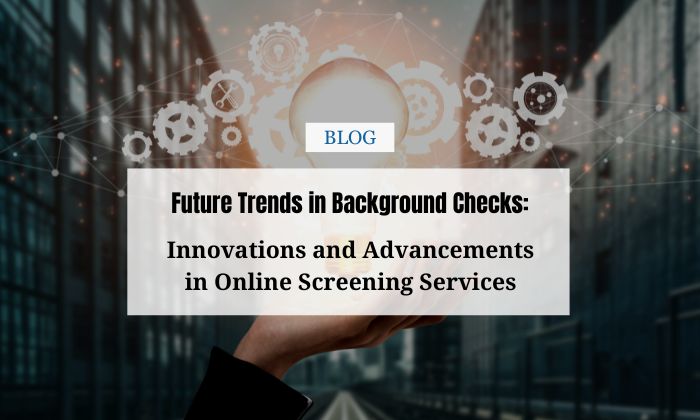The landscape of Background Verification (BGV) is in the midst of a profound evolution. With rapid advancements in technology and the changing nature of work patterns worldwide, traditional practices are being reevaluated, leading to the emergence of fresh hurdles and opportunities. As organizations adapt to this shifting terrain, the need for innovative solutions and adaptable strategies becomes increasingly apparent.
New Technologies Like Deepfakes In The Digital Age And The Challenges They Pose
Imagine a job seeker applies for a prestigious role, acing a video interview with apparent ease. Their confident demeanor, articulate responses, and genuine expressions seem impeccable. The catch? They’re not real. Deepfakes, AI-powered simulations of individuals, can seamlessly manipulate video and audio, presenting convincing yet entirely fabricated personas. This poses a serious threat, as these deceptive tactics can circumvent traditional verification methods, infiltrating recruitment processes and causing substantial financial harm. Recently, a multinational company’s Hong Kong branch fell victim to a deepfake scam, losing millions after fraudsters impersonated their CFO in a video call and authorized fraudulent money transfers.
But deepfakes are just one piece of the puzzle. Other tech-driven fraud methods are also evolving:
- Synthetic Identities: Fraudsters use stolen data and AI to create fictitious online personas, complete with fake social media profiles and work histories.
- Voice Cloning: AI algorithms can replicate voices with astonishing accuracy, enabling impersonation over the phone or voice-activated systems.
- Document Manipulation: Advanced software can alter documents like passports or financial statements, making them appear genuine.
As technology progresses, so does the complexity of identity fraud. AI advancements will blur the line between real and fake, while fraudsters adapt their tactics to exploit vulnerabilities. To combat these threats:
- Stay informed and update verification protocols to counter emerging fraud techniques.
- Blend technology-driven checks with human expertise to detect anomalies effectively.
- Integrate traditional checks with digital identity verification, behavioral analysis, and social media screening.
- Implement continuous verification for high-risk positions to mitigate long-term fraud risks.
- Collaborate with BGV providers well-versed in emerging threats and best practices.
Ethical considerations loom large in the realm of BGV. Balancing verification effectiveness with data privacy rights, addressing potential biases, and ensuring transparency are paramount. To navigate these challenges:
- Prioritize transparency in the verification process and obtain informed consent from applicants.
- Adhere to ethical data handling practices, complying with regulations and using data only for legitimate purposes.
- Maintain human oversight in AI-driven processes to mitigate biases and ensure responsible use.
By embracing a human-centric approach and leveraging technology responsibly, organizations can navigate the complexities of BGV while safeguarding integrity and trust.
Future Of BGV For Different Working Classes
The realm of Background Verification (BGV) mirrors the dynamic changes we’ve witnessed in the post-pandemic work landscape, spanning blue-collar, white-collar, and gig workers. This transformation necessitates a tailored approach to background checks, moving beyond outdated, one-size-fits-all models. By recognizing the unique needs of each workforce segment, businesses can fine-tune their verification strategies, enhancing efficiency, accuracy, and risk mitigation. According to a report by MarketsandMarkets, the global background check market is projected to soar from $4.8 billion in 2020 to $8.8 billion by 2025, reflecting a compound annual growth rate (CAGR) of 13.0%.
For blue-collar workers, who encompass professions like carpenters, electricians, and truck drivers, safety and reliability are paramount. While traditional checks such as employment history verification remain crucial, the emergence of specialized roles in construction and manufacturing demands assessments of technical skills and certifications. Moreover, considerations like drug screening and driving record checks are vital for safety-sensitive positions. On the other hand, white-collar workers, including managers, lawyers, and engineers, prioritize trust and integrity. In addition to verifying educational qualifications, checks for professional licenses and disciplinary histories gain significance. Meanwhile, the gig economy, driven by platforms like Uber and Lyft, presents its unique challenges. For gig workers, independent contractors who thrive on flexibility, verifying credentials requires innovative solutions such as platform-based performance metrics and skills assessments.
As we navigate this ever-evolving landscape, staying abreast of emerging fraud tactics and adapting verification protocols accordingly is key. While technology plays a pivotal role, human expertise remains indispensable for interpreting data and identifying potential red flags. By combining traditional checks with digital identity verification, behavioral analysis, and social media screening, businesses can fortify their defense against fraud. Ultimately, ensuring transparency, ethical data handling, and human oversight are essential pillars in safeguarding integrity and trust in the background verification process.
Decoding Trends in the Background Verification Landscape
The realm of Background Verification teeters on the brink of a profound transformation, propelled by technological progress, shifting regulations, and evolving workforce dynamics. This once-traditional sector is now evolving into a multifaceted ecosystem, adapting to meet the diverse demands and complexities of the modern era. In this ever-changing landscape, it’s imperative to grasp the emerging trends that are reshaping the future of BGV. Embarking on a journey of data-driven exploration, we delve into industry-specific patterns, forecasts, and their implications for identity verification and risk management strategies.
Ethical Considerations: Balancing Security And Privacy
In today’s digitally-driven environment, ethical considerations are at the forefront of background verification, especially when balancing security needs with individual privacy rights. Securing explicit, informed consent from those undergoing verification is essential. This empowers individuals to comprehend the verification process, the data being collected, and how it will be utilized. Transparency fosters trust and enables individuals to address any potential inconsistencies proactively.
Addressing algorithmic bias and safeguarding data privacy are critical concerns:
- Algorithmic Bias: Ensuring AI-driven solutions remain impartial and free from perpetuating discriminatory practices.
- Data Privacy: Striking a balance between verification requirements and individuals’ privacy rights and data security.
- Transparency and Fairness: Clearly communicating the verification process and ensuring fairness at every stage.
However, consent alone isn’t sufficient. Responsible data handling and storage are equally vital. The data collected during verification should be limited to what’s strictly necessary for the role and job responsibilities. Implementing secure storage practices, such as encryption and access controls, is crucial to safeguard sensitive information against unauthorized access or misuse. Moreover, adherence to relevant data privacy regulations like GDPR or CCPA is essential for compliance and upholding individual rights.
Ethical considerations aren’t just moral obligations but also indispensable for business integrity and regulatory compliance. They lay the foundation for building trust and fostering transparency in background verification practices.
Work with a background check provider like Securecheck360
Here at Securecheck360, we’re experts in delivering reliable, fast turnaround and affordable Employment Background Screening Services, serving businesses of all sizes across the globe. Our customized solutions are finely tuned to meet the unique requirements of small, mid-sized, and large organizations. We’re dedicated to equipping companies with the vital tools and insights they need to make well-informed hiring choices. As one of the leading background verification companies, we’re committed to supporting even small businesses as trusted background check companies for small businesses to ensure they have the confidence to build the best teams for their success.
To know more about our services, book your free demo today!






